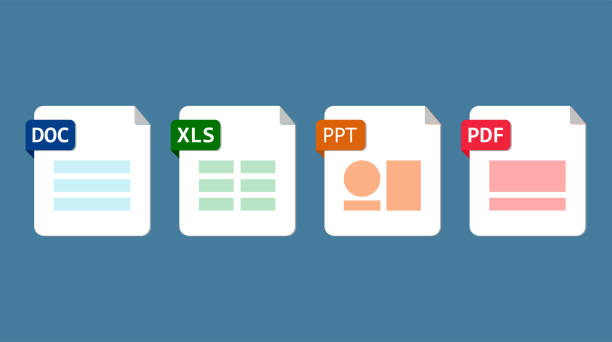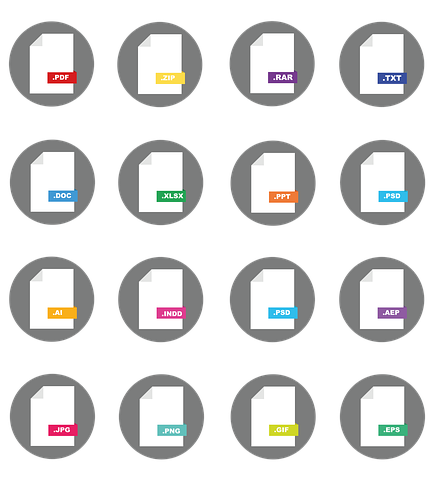Converting PDFs to Word documents can be more than just a convenience. While the ability to quickly convert PDF to Word documents is certainly a great benefit, there are many other advantages that make it a valuable asset to business professionals. PDFs are often used to share documents with clients, colleagues, and partners, and the ability to easily convert them to Word documents can save time, increase efficiency, and reduce costs. Additionally, converting PDFs to Word documents gives users the ability to modify the document to their specific needs, allowing for greater flexibility and convenience. Furthermore, PDF to Word conversions can provide the user with valuable data from the original document, such as fonts, colors, and formatting, that may not be available in the original PDF. In this blog post, we will explore the various benefits of converting PDFs to Word documents and discuss why it is more than just a convenience.
1. Increased Accuracy of Editing
One of the greatest advantages of converting PDFs to Word is the increased accuracy of editing. When PDFs are converted to Word documents, users are able to make changes more quickly, as Word documents are easier to edit than PDFs. With a Word document, users can easily add and delete text as well as rearrange document elements. This can be especially useful for large documents such as manuals and textbooks, where small changes can be made with ease. Additionally, Word documents allow users to make use of formatting tools such as tables and columns to create a professional-looking document.
2. Easily Shareable and Accessible
One of the main advantages of converting a PDF file to Word is that it allows you to easily share your document with others and make it accessible to them. Once you upload your PDF to an online converter, you can easily share the resulting Word document with anyone you choose, with just a few clicks. You can even share the document with a group of people, without having to worry about whether they have a PDF reader installed or not. This makes it much easier to collaborate with others, as well as ensure that your document is easily accessible to all.
3. Improved Collaboration
Improved collaboration is one of the most important benefits of converting PDFs to Word. Instead of having to download and share PDFs, which can be difficult to edit, you and your collaborators can easily work on the same Word document at the same time and make changes as needed. You can even communicate with each other in real-time to discuss changes and ideas. This makes collaborating on documents easier and more productive than ever before.
4. Enhanced Collaborative Editing

One of the greatest benefits of converting PDFs to Word is the ability to use enhanced collaborative editing tools. With this feature, multiple users can simultaneously edit a document in real time without having to send it back and forth, saving a great deal of time. Plus, you can see the changes each user makes and make comments and annotations for further discussion. This makes it easier to make sure everyone is on the same page and that no changes are lost in the process.
5. Reduces File Size
One of the biggest advantages of converting PDFs to Word documents is the significant reduction in file size. Not only is this essential when you’re dealing with large files, but it also makes sharing them much easier. By converting a PDF to a Word document, you can compress its size while still preserving its formatting and layout. This makes it easier to store, share, and collaborate on projects, as well as to save space on your hard drive.
6. Improved Security
Improved security is another great benefit of converting PDFs to Word documents. The PDF format is often associated with higher security levels, as documents can be locked, watermarked, and require passwords to open. In contrast, Word documents offer less secure options. When converting a PDF to Word, you can choose to maintain the same security standards, ensuring that the document is still shielded from unwanted viewers. This is especially important if the document contains sensitive information that needs to be protected.
7. Format Preservation
Format preservation is a crucial part of converting PDFs to Word documents. PDFs are the industry standard for document formats, and they contain a lot of rich formatting that can be difficult to transfer to a Word document. This is especially true when working with complex documents containing tables, images, and text formatting. Fortunately, there are tools available that can keep the formatting intact during the conversion process, ensuring that all of the original formatting is preserved in the new document. This makes it easier for editors to work with the document and ensures that the final product looks exactly like the source file.
8. Accessibility to Different Platforms
Additionally, when you convert PDFs to Word, you are creating accessibility to different platforms. For example, once a PDF is converted to a Word document, it can be edited, shared, printed, and viewed on any device. This means that people who do not have access to the same software can work collaboratively on the same project. Furthermore, the file can be embedded into different webpages so that it can be shared and viewed from anywhere. This is much more convenient than having to install the same software in multiple places.
Overall, converting PDFs to Word documents is more than just a convenience. It’s a vital step in the document creation process, allowing users to quickly create, edit, and share documents with others. While there are several options available for converting PDFs to Word, using a reliable and efficient PDF to Word converter is the best option for ensuring that documents are converted accurately and quickly.














